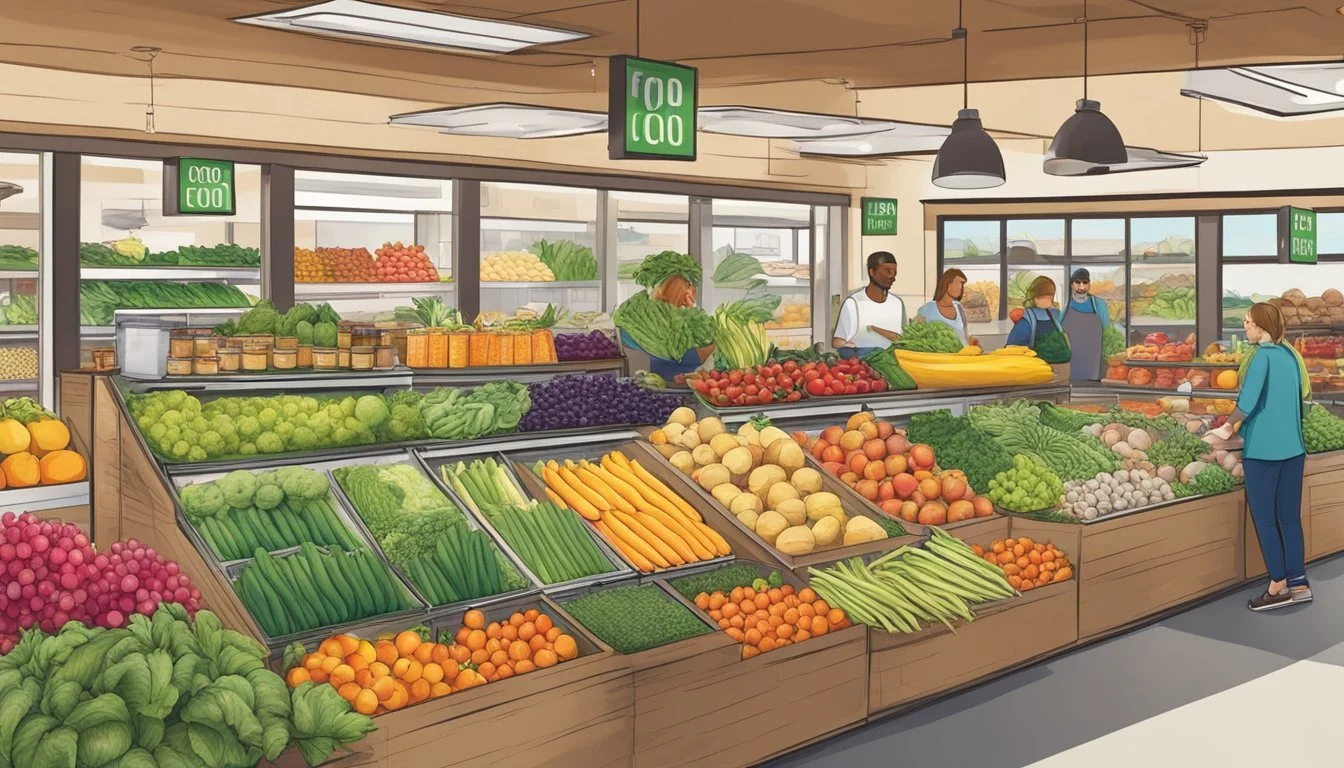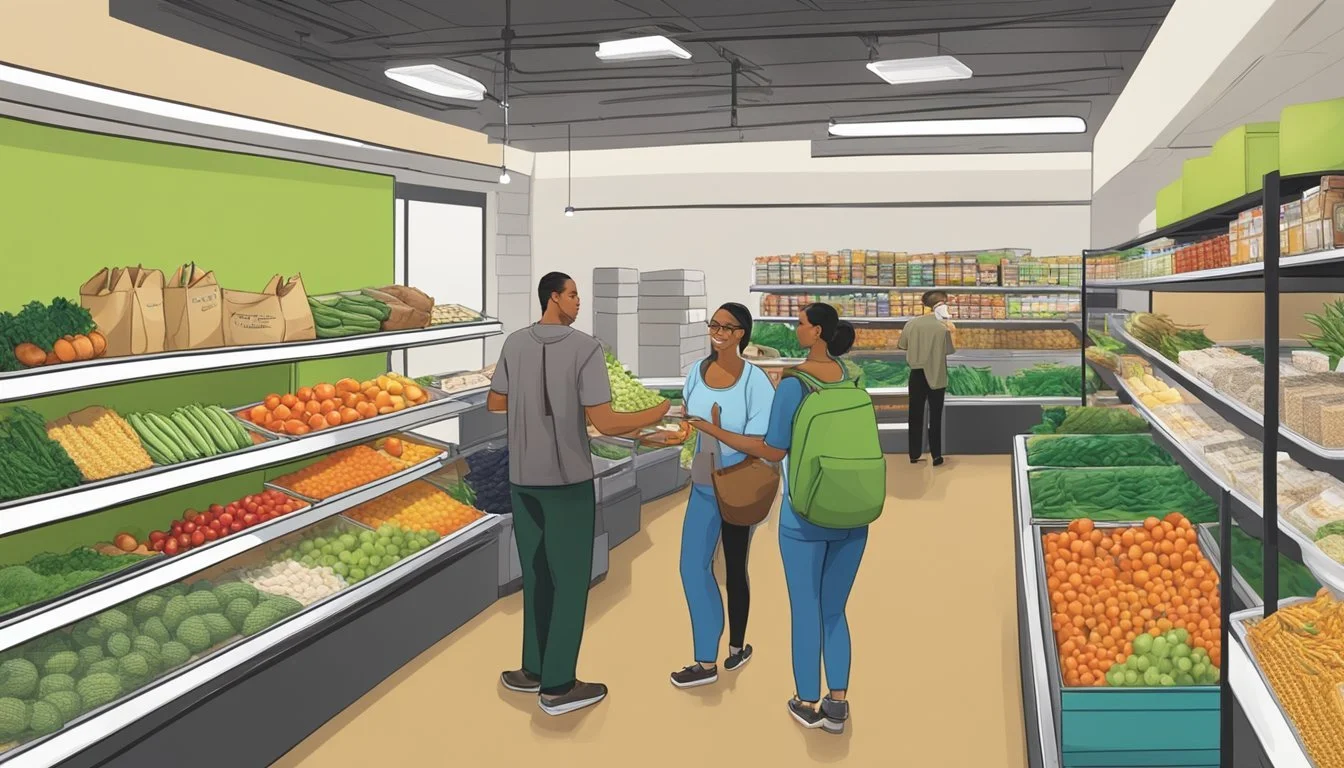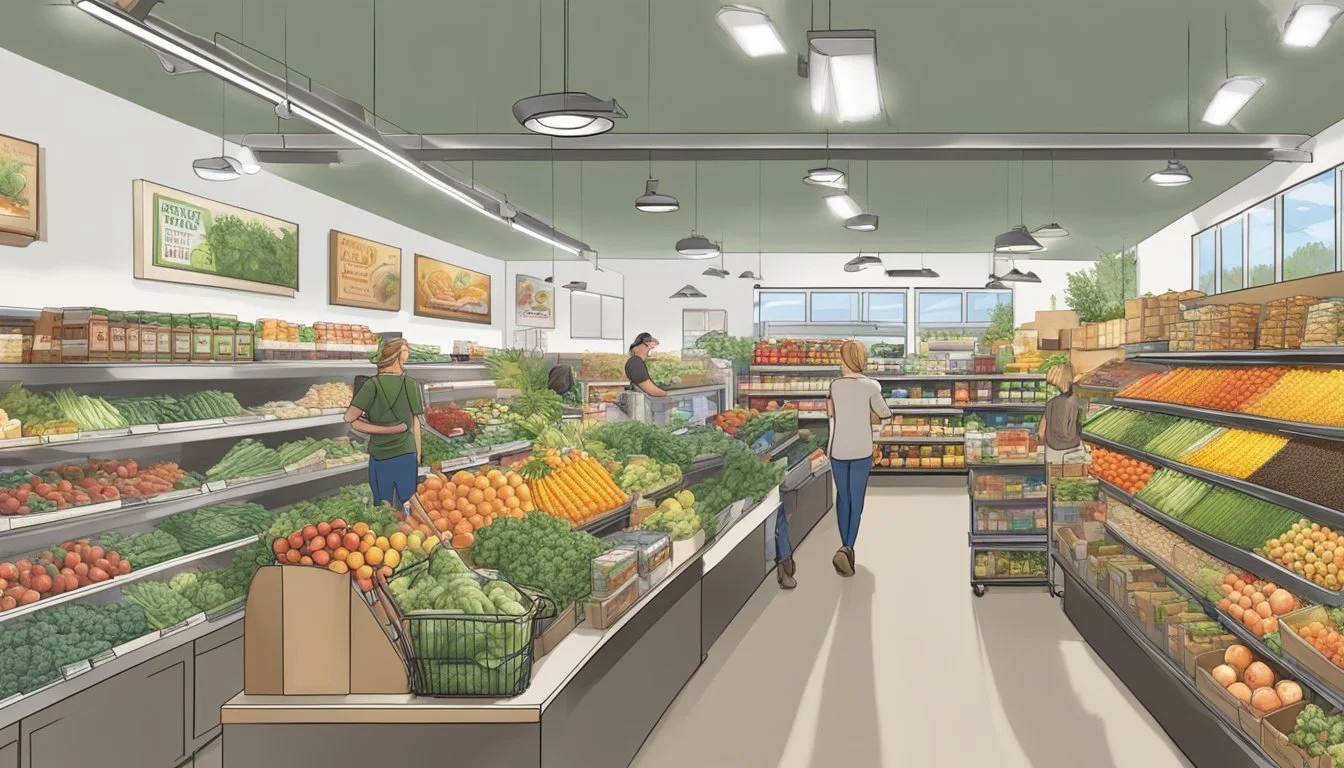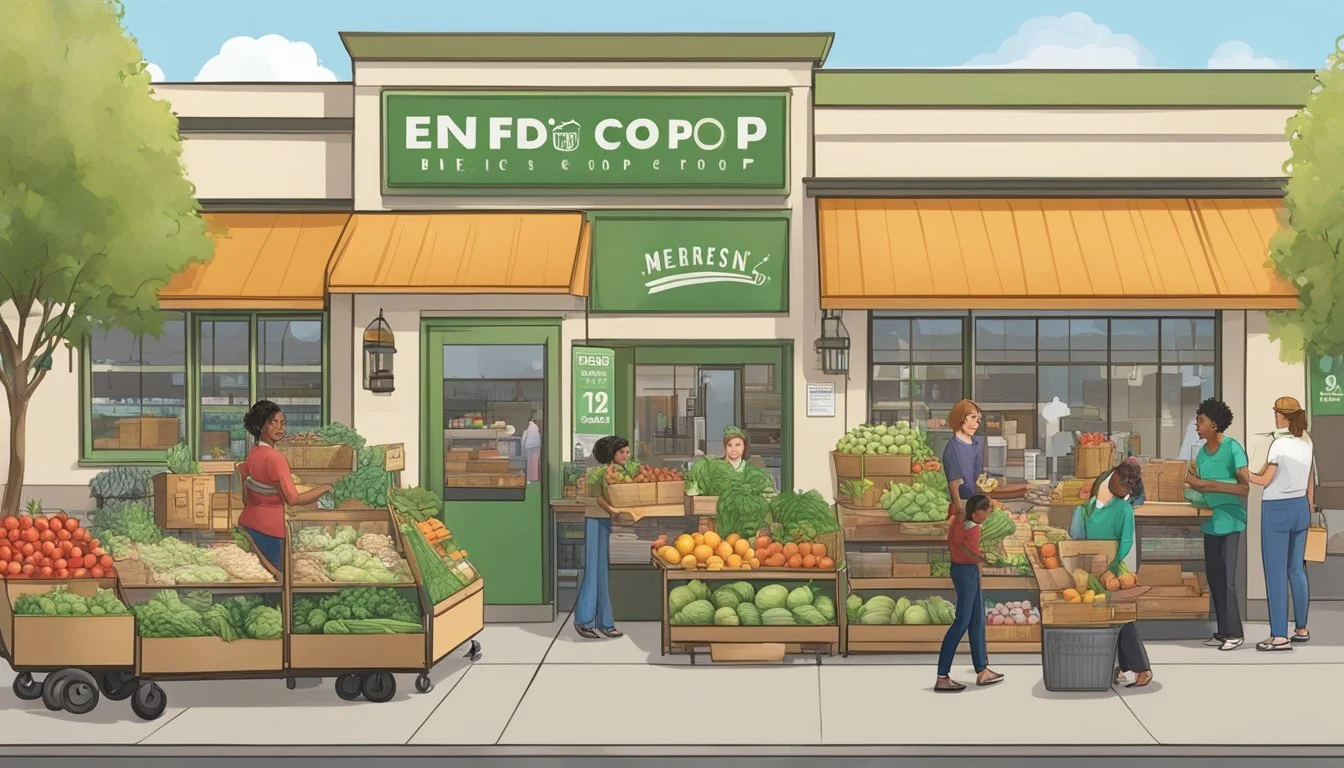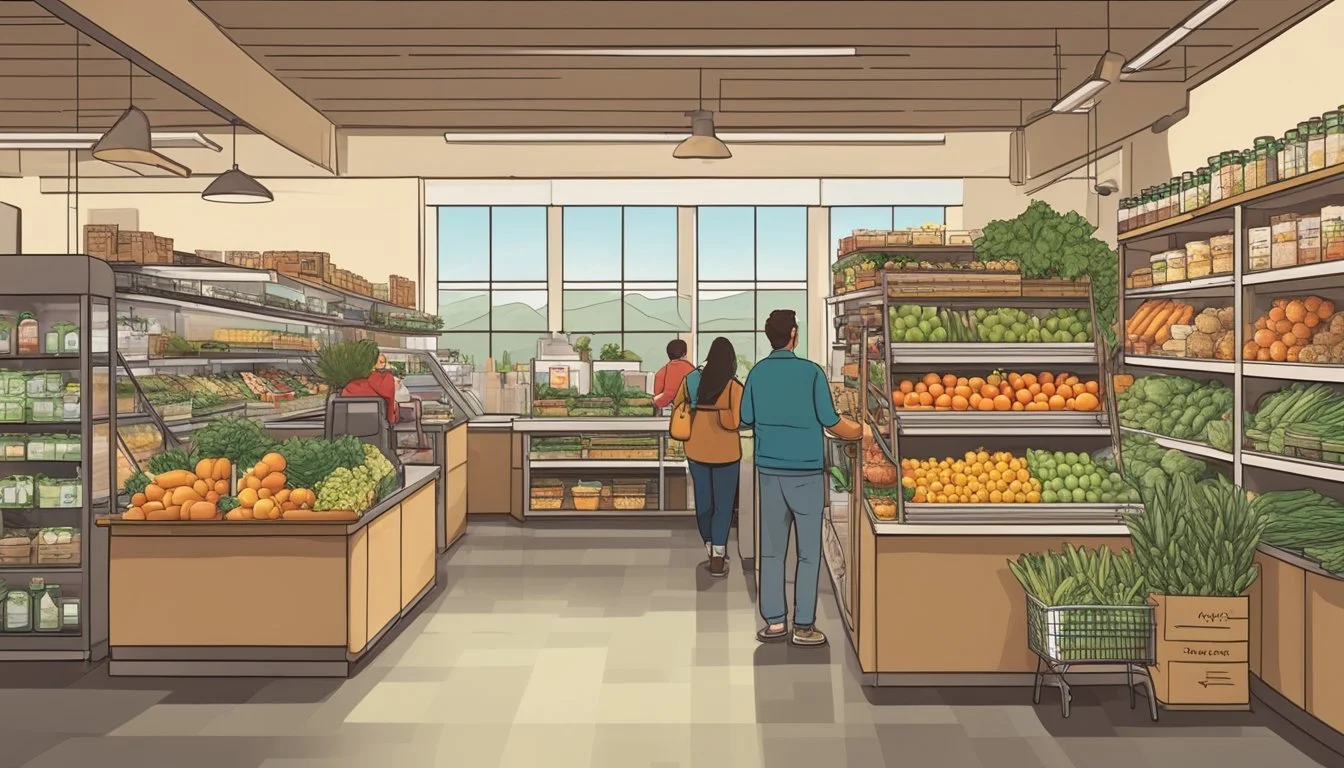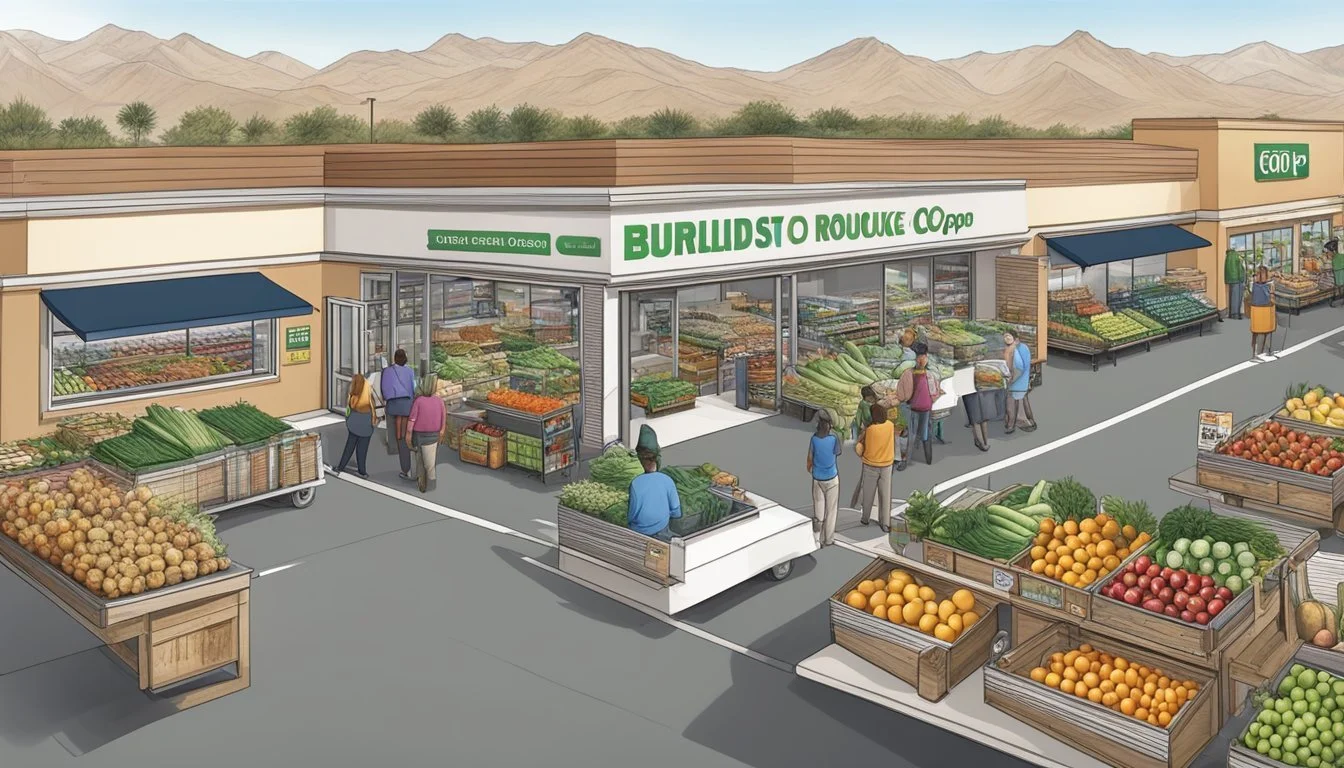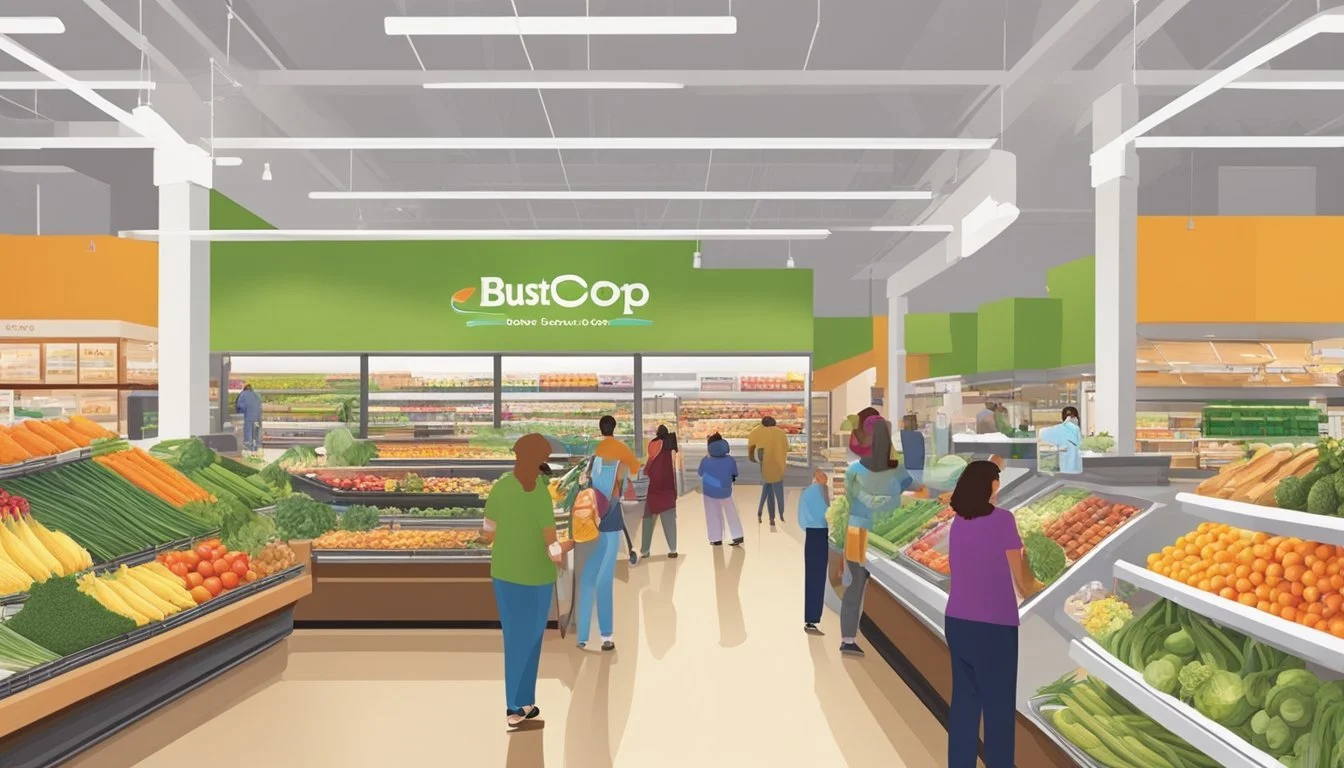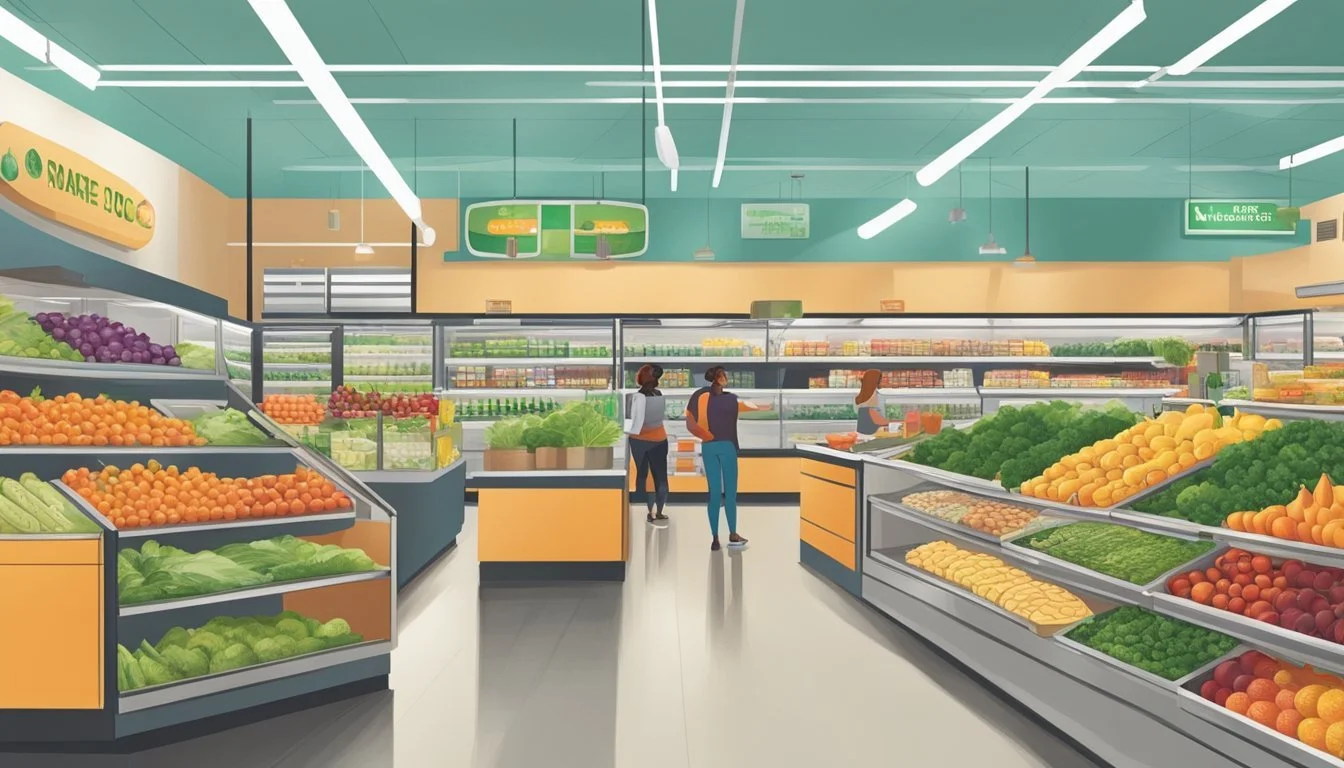Guide to Food Co-Ops in Henderson, NV
Your Essential Directory
In Henderson, Nevada, food cooperatives offer a refreshing alternative to standard grocery shopping, providing access to local, organic, and farm-fresh produce and products. These cooperatives operate on a membership basis, yet many are open to the general public, fostering a community-centric approach to food sourcing. Residents benefit from a direct connection to nearby farms and producers through these organizations, which emphasize healthy eating options and sustainable practices.
The Vegas Food Co-op is one notable example, serving the Henderson area by offering locally sourced, grass-fed beef and lamb, along with pasture-raised pork. Their model includes negotiating with ranches for fair prices and arranging free delivery to various drop locations in the Las Vegas Valley. Another local food cooperative, Farm 2 Vegas Table Co-op, emphasizes community-supported agriculture (CSA), inviting members to share in the harvest of local growers and fostering a closer relationship between the consumer and their food sources.
Such initiatives represent a growing interest in food provenance and a commitment to health and environment among Henderson’s residents. Through these food co-ops, the community gains not just access to quality ingredients but also an opportunity to actively participate in a system that values local economies and responsible consumption. These cooperatives are more than just places to buy groceries—they are pivotal parts of a movement towards a more connected and sustainable way of living.
The Basics of Food Co-Ops
A food co-op is a cooperative entity that is owned and controlled by the individuals who utilize its services. Members work collectively to provide grocery options that often focus on local, organic, or natural products. Unlike conventional supermarkets, food co-ops operate on principles of community, democracy, and member control, where each member has a say in the business decisions of the cooperative.
Ownership in a food co-op is open to all willing to accept the responsibilities of membership. This often involves purchasing a share in the co-op, which grants the member various benefits:
The right to vote on important issues
Participation in product selection
A portion of profits in profitable years
Benefits Description Shared Profits Returns on purchases when co-op profits. Community Support Supports local growers and producers. Democratic Control One member, one vote.
Food co-ops often serve as more than just a retail operation; they contribute to the local community by providing education on food issues and supporting members in leading a healthier lifestyle. Co-ops can also offer discounted prices through bulk purchasing and passing the savings onto their members.
It's important to understand that a co-op's commitment extends beyond economic benefits. They strive for sustainability in their operations and aim to have a positive impact on the local food system. As a member, one contributes not just to their own wellbeing, but to the health of their greater community and environment.
Benefits of Joining a Co-Op
Joining a food co-op in Henderson, NV, offers individuals a range of advantages, from bolstering the local economy to accessing a diverse selection of organic products, along with the potential for discounts and savings on purchases.
Support Local Economy
By participating in a food co-op, members invest directly in their local communities. Co-ops in Henderson prioritize sourcing produce and other goods from local farmers and producers. This practice keeps money within the local economy, fostering growth and sustainability. When consumers buy from a co-op, they're not just purchasing goods, they're supporting the livelihood of local growers and contributing to the health of the regional agricultural system.
Access to Organic Products
Food co-ops are often a hub for organic and healthy food options. They typically offer a wide assortment of organic produce, ensuring that members have access to fruits and vegetables that are free from synthetic pesticides and fertilizers. This commitment to organic products is grounded in the co-op's dedication to environmental stewardship and providing healthy choices for its members.
Discounts and Savings
Members of food co-ops can enjoy various discounts and savings that may not be available to the general public. Co-ops operate on a shared ownership model, and members often receive:
Discounts on products across the store
Special member-only deals
Dividends or rebates based on the co-op's financial performance
While each food co-op's policies on savings may differ, the potential for financial benefits is a compelling reason for many shoppers to join these community-oriented businesses.
How Food Co-Ops Work
In Henderson, Nevada, food co-ops function through a system of member contributions and collective decision-making, with an emphasis on streamlining the ordering process and managing operations efficiently.
Member Contributions and Roles
Members of a food co-op contribute both time and money to the operation. They pay annual dues, which can range from $24 to $48, and in return, they receive a significant discount on purchases—often between 15 to 20 percent. The co-op may also require members to work a certain number of hours weekly, fulfilling roles from stocking shelves to managing finances.
Ordering and Purchasing Process
The ordering process in food co-ops is typically member-driven. Members collectively decide on the products and place bulk orders to save on costs. Many co-ops have set minimum order amounts to ensure they meet supplier requirements and sustain their budget. This approach allows them to offer a variety of products at discounted rates compared to traditional retail.
Operations and Management
Operations and management of a Henderson food co-op are overseen by its members, often facilitated by an elected board. The members establish the co-op's purchasing practices and oversee its budget to ensure financial health. Active participation in management not only gives members a say in the operations but also can lead to more efficient and effective decision-making.
Understanding Co-Op Membership
Food co-ops offer individuals a way to not just shop for food, but to invest in their food sources and gain benefits as both a shopper and an owner. The structures and benefits of co-op memberships can vary significantly, but most hinge on shared ownership and democratic control by members, who often enjoy financial benefits like discounts on purchases.
Types of Memberships
There are generally two types of food co-op memberships: working and non-working. Working members commit to contributing a certain number of hours per week, which entitles them to deeper discounts. Non-working members pay an annual fee without the requirement of working hours, receiving a smaller discount as a result.
Member Responsibilities
Members of food co-ops often share responsibilities in the governance of the organization. They may vote on significant decisions, stand for election on the board of directors, or partake in volunteer opportunities. Additionally, members commit to paying any annual fees or dues required to sustain their membership status.
Financial Benefits for Members
Members can enjoy financial benefits such as:
Discounts: Typically ranging from 15% to 20% for working members. Non-working members usually receive a lesser discount rate.
Shared profits: In profitable years, members may receive a share of the co-op's surplus in the form of patronage dividends based on their shopping.
By participating in a co-op, members can often save money over time compared to shopping at conventional outlets.
Locally Sourced Products
Food co-ops in Henderson, NV, emphasize strong farm-to-co-op partnerships, ensuring that a variety of local, often organic, products reach consumers. These relationships with local farmers and ranches cater to those seeking fresh, sustainable food options.
Farm-to-Co-Op Relationships
Food co-ops in Henderson maintain direct relationships with local producers. This collaboration results in a supply chain that supports local economies and provides transparent sourcing of products. Customers have access to organic food, ranging from grass-fed beef to pastured pork, delivered with minimal delay from farm to shelf.
Local Farmers and Ranches
Local farmers and ranches are the backbone of Henderson's food co-ops. They provide a plethora of fresh items including pastured chicken eggs, vegetables, and fruits. Notably, Herbs by Diane offers organic herbs and microgreens, which are a staple at these co-ops. The emphasis on organic methods showcases a commitment to sustainable practices.
Seasonal Availability
Co-ops in Henderson pivot their offerings based on seasonal availability, ensuring that members get the freshest produce at its peak. Here's a brief overview of the items and their typical seasonal availability:
Spring/Summer: Microgreens, various herbs, figs, pomegranates, berries, and stone fruits
Fall/Winter: Root vegetables, greens like kale and spinach, grapes, nuts, and an assortment of squashes
The incorporation of tallow and nuts into the product mix provides consumers with additional local, sustainable options throughout the year.
Health and Nutrition
In Henderson, NV, food co-ops serve as indispensable sources for health-conscious consumers seeking organic and Non-GMO offerings that promote a nutritious diet. They tend to offer a range of organic produce and healthy foods that may be beneficial for both personal health and the environment.
Organic and Non-GMO Offerings
Food co-ops in Henderson prioritize the provision of organic produce which is grown without synthetic pesticides or fertilizers. These co-ops typically source from local farms that adhere to organic farming practices, ensuring a selection that supports consumers' desire to eat healthy. For instance, offerings may include organic fruits, vegetables, and grains that are certified organic, thereby upholding the standards for ecological stewardship and consumer health.
The presence of goods like non-GMO heritage grain reflects the co-ops' commitment to providing food that retains its genetic constitution as nature intended. The absence of genetically modified organisms (GMOs) in these products is particularly important to many shoppers who are wary of the potential long-term impacts of GMOs on health and the environment.
Health Benefits of Co-Op Produce
Consumers who frequent food co-ops often do so for the health benefits associated with organic and Non-GMO produce. Organic fruits and vegetables are known for having lower pesticide residues, which is a significant consideration for those looking to minimize their exposure to potentially harmful chemicals. Moreover, food co-ops often supply produce that is fresher than what is found in conventional grocery stores, as it is sourced locally. This not only supports local farmers but also ensures that produce retains more nutrients, as the time from farm to table is considerably reduced.
The availability of a variety of healthy foods in Henderson food co-ops allows for a diverse diet that can contribute to overall well-being. They provide essential nutrients that can enhance the immune system, improve digestion, and reduce the risk of chronic diseases. By offering a wide range of healthy, organic options, these co-ops play a pivotal role in fostering a community that values nutrition and a sustainable lifestyle.
Economic Impact of Food Co-Ops
Food cooperatives play a pivotal role in bolstering Henderson's local economy by directly supporting small businesses and reinforcing the local food system.
Supporting Small Businesses
Food co-ops in Henderson contribute to the economic vitality by sourcing from local producers and small businesses. This practice not only keeps money within the community but also creates a supportive network of local trade. They often provide small businesses with a consistent and reliable marketplace, thereby enabling these entities to sustain and grow their operations.
Key Contributions to Small Businesses:
Local Sourcing: Food co-ops prioritize products from local suppliers, funneling revenues back into the community.
Job Creation: Collaborations with food co-ops usually lead to job creation within these small businesses.
Strengthening the Local Food System
The promotion of sustainable and locally grown food is at the heart of food co-ops' mission in Henderson. By focusing on providing nutritious options that are grown or produced nearby, they strengthen the resilience of the local food system. This often involves establishing long-term partnerships with local farmers, which in turn stimulates agriculture and related industries in the area.
Positive Outcomes for the Local Food System:
Economic Circulation: Every dollar spent at food co-ops has a multiplicative effect, recirculating within the local food system and economy.
Local Farm Support: The commitment to stock locally grown produce translates to financial support for regional farms, enhancing their economic viability.
Environmental and Social Responsibility
Food co-ops in Henderson, NV, are deeply committed to reducing their environmental impact and fostering social responsibility. These values are reflected in their efforts to minimize food waste, promote sustainable practices, and engage with the community.
Reducing Food Waste
Food co-ops actively work to lessen food waste, a critical step in decreasing their overall carbon footprint. They implement programs designed to use overstock items and imperfect produce, ensuring that fewer food items end up in landfills. By focusing on zero-waste initiatives, they advocate for a more sustainable food system and help consumers become more conscious of their food consumption.
Promoting Sustainable Practices
Sustainability is a core principle for Henderson food co-ops. They collaborate closely with local farms that prioritize environmentally friendly farming techniques. This includes the promotion of 100% grass-fed beef and lamb, as well as pasture-raised pork fed with non-GMO heritage grain. These practices not only support animal welfare but also contribute to a reduction in the environmental impact associated with traditional agricultural methods.
Community Engagement
Through community engagement, food co-ops help educate the public about the importance of social and environmental stewardship. They report their efforts and outcomes, such as their commitment to providing a significant portion of their employees with healthcare benefits, which is notably higher than the national average. This transparency fosters trust and motivates community members to partake in environmentally friendly practices, promoting a collective effort toward environmental sustainability.
Additional Services and Products
In Henderson, Nevada, food co-ops not only provide a range of fresh, organic produce but also extend their offerings to include bulk buying options and personal home necessities. Members benefit from wholesale pricing and an assortment of goods that cater to a wholesome, eco-friendly lifestyle.
Bulk Ordering and Discounts
Food co-ops in Henderson offer bulk ordering which allows members to purchase larger quantities of groceries at reduced prices. This system supports both savings on the budget and sustainability by minimizing packaging waste.
Groceries: Members can buy staple foods such as grains, beans, nuts, and spices in bulk.
Wholesale prices: Buying in larger quantities translates into savings, as co-ops typically pass on the discounts derived from bulk purchases directly to their members.
Personal Care and Household Items
The co-ops in Henderson are mindful of the broader needs of their members, stocking a selection of personal care products and household items that are environmentally responsible.
Personal Care Products: Shoppers can find organic and cruelty-free soaps, shampoos, and lotions.
Household Items: The selection often includes eco-friendly cleaning supplies and reusable kitchenware.
These co-ops are dedicated to providing their community with a one-stop shop that not only nourishes their bodies with healthy groceries but also nurtures their homes and the environment.
Navigating Challenges
In Henderson, Nevada, food co-ops face unique challenges, from adapting to market fluctuations to maintaining operations during health crises. This section provides insights into how these entities have approached and circumvented obstacles.
Adapting to Market Changes
Market changes can be volatile and unpredictable, impacting the availability and price of goods. Grocery stores and food co-ops in Henderson have to stay agile to accommodate these fluctuations. They do so by:
Sourcing locally to reduce dependency on long supply chains.
Maintaining a diversified product range to manage seasonal produce shifts and availability.
Operating During a Pandemic
Operating a food co-op during a pandemic requires careful strategy and execution. Grocery stores in Henderson have taken specific measures to ensure their customers' and staff's safety while providing essential services:
Implementing contactless delivery and curbside pickup options to minimize contact.
Enforcing health and safety protocols, such as regular sanitization, mandatory face coverings, and social distancing within the store.
Future of Food Co-Ops in Henderson
The food co-ops in Henderson, NV, are entering a phase of transformation, influenced by both the needs of the local community and broader trends in sustainable agriculture.
Growing Trends
In Henderson's corner of the Las Vegas Valley, the demand for sustainable and ethically-sourced products is on the rise. Food co-ops are responding by embracing regenerative agriculture practices. This shift not only addresses consumer demand but also contributes to combating climate change, positioning Henderson's food co-ops as local leaders in environmental stewardship.
They are likely to expand their offerings to include more organic and locally-produced goods, aligning with the national movement towards transparency and sustainable food systems. These trends point towards a future where food co-ops are pivotal in fostering community well-being and resilience.
Innovation in Co-Op Operations
Food co-ops in Henderson are anticipated to implement innovative operational strategies to streamline their services and heighten the customer experience. This may include:
Technology Integration: Adopting digital tools for inventory management, customer outreach, and streamline the shopping process.
Membership Engagement: Strengthening the co-op community through improved member benefits, educational initiatives, and participatory governance models.
Innovations are poised to make food co-ops more efficient and responsive to members' needs, securing their role as indispensable fixtures in the local food landscape. Henderson's co-ops will continue to evolve, offering insights into the ever-changing dynamic of food distribution and community-oriented retail.
Appendix
This Appendix serves as a supplementary guide, providing a comprehensive terminology, a curated list of resources and frequently asked questions to enhance the reader’s understanding of food co-ops in Henderson, NV.
Glossary
Food Cooperative (Co-op): A food distribution outlet operated by consumers who voluntarily organize to provide food and related goods at mutually beneficial terms.
Commission: A body of individuals elected or appointed to govern or oversee a specific project such as the revitalization of local food markets or food co-ops.
Resources and References
LocalHarvest: A primary source for finding food co-ops and organic produce in Henderson, NV.
Website: LocalHarvest
Vegas Food Co-op: An example of a local food cooperative in the Las Vegas Valley area that offers farm-raised meat.
Website: Vegas Food Co-op
FAQs
What is the main purpose of a food cooperative? Food cooperatives aim to provide their members with quality food choices at reasonable prices, with an emphasis on local, organic, and sustainable agriculture.
How does one contribute to or benefit from a food cooperative? Members contribute through purchasing a membership, volunteering, or participating in co-op governance. Benefits include having a say in the operation, potential savings on groceries, and supporting local producers.

